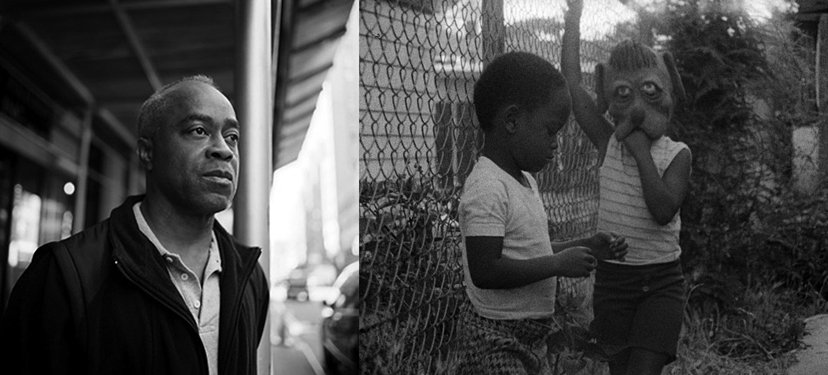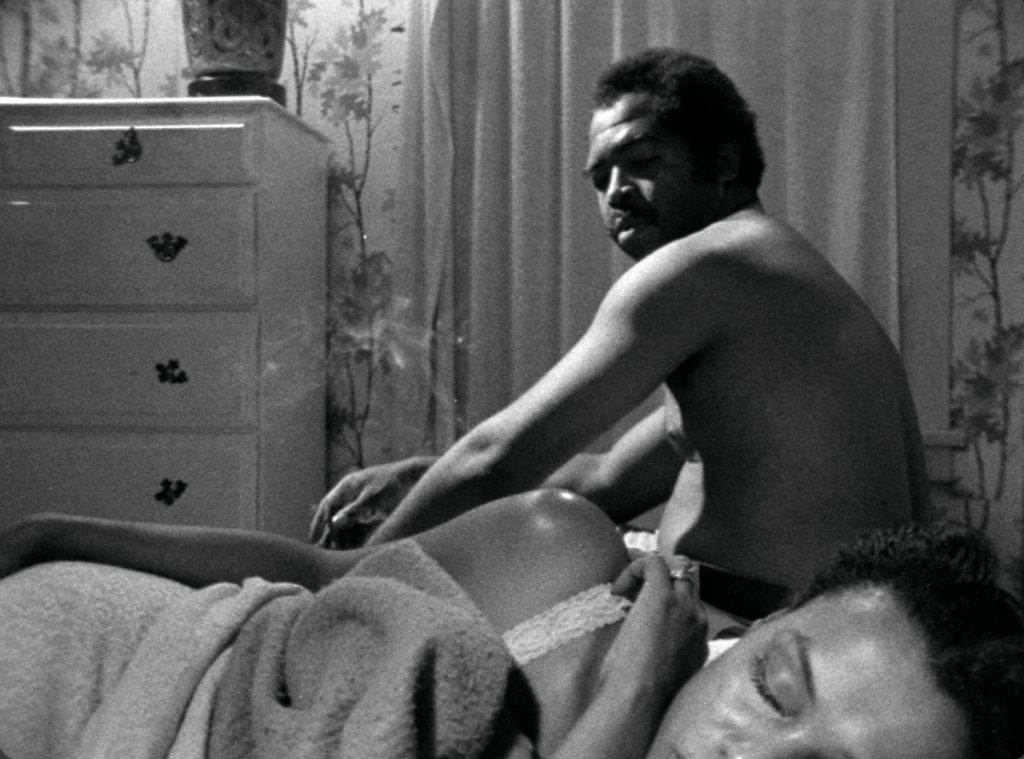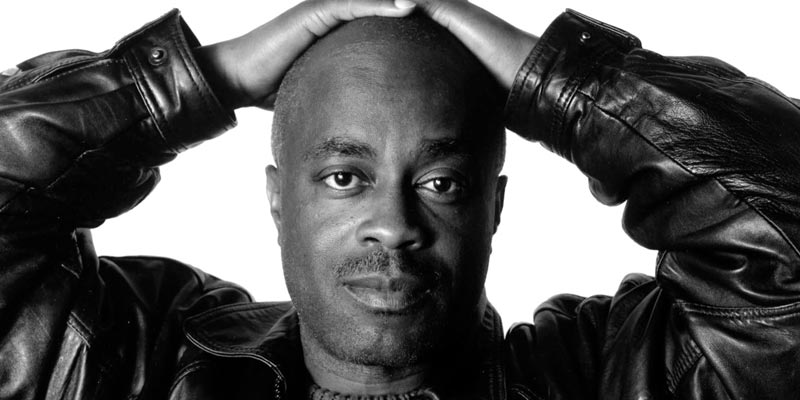Last week, we provided you with coverage of the newly-restored version of “Bless Their Little Hearts,” director Billy Woodberry’s taut exploration of how rampant early 1980’s unemployment affects one-black family, as a stand-in for many others, in South Central, Los Angeles.
Playing alongside “Bless…” at the IFC Center in New York City is the re-release of what can be seen as its ‘mother’ film, the unadulterated classic film “Killer of Sheep” (1978). Written and directed by Charles Burnett, who also wrote and served as director of photography of “Bless…”, “Killer of Sheep” is a more meditative drama about a different Black family in Los Angeles’ Watts neighborhood, told from the perspective of Stan (Henry Gayle Sanders), a slaughterhouse worker growing exceedingly numb from the physical and mental toll of his work. Stan only finds some happiness in his quiet moments, including those with his daughter and wife. The film is also known for its then seldom-seen view of Black children in Watts, and its slow build toward becoming not only a treasured Black film, but a national treasure as the Library of Congress declared it as one of the first fifty in the National Film Registry and the National Society of Film Critics selected it as one of the “100 Essential Films” of all time.
I was able to interview Burnett for a few minutes on his recent trip to New York City on a rather extra-busy day for him, amidst rumbling traffic in which he asked whether construction or noise ever stops here. I assured him it does not. And while I’ve met the man personally, and seen him speak multiple times over the past decade, most recently on the release of his recently restored third feature, “To Sleep With Anger” (1990) last autumn, I found even more so the always soft-spoken auteur to be rather Stan-like in his approach to the world, his sensitivity and genuine-ness apparent in making the simplicity of Black life literally come to life on the silver screen.
After some gushy compliments, my first question was rather direct, wondering why in “Bless…” he chose to write another screenplay on Black Los Angeleno life. “This was the late 70’s, early 80’s, and we were trying to tell stories of the Black experience…this just fit right in,” he answered. “These were people we knew, and so we were trying to turn them into heroes…to give them a voice. These were people who kept looking for jobs, kept looking to maintain a sense of decency.”

Burnett asserts that, “We were responding to the Hollywood movies that were happening at the time…we wanted to give a realistic account to what was happening if you were in the community. We were trying to tell stories about the ordinary lives of people, to dramatize the sort of problems that they encounter. If you’re going to make any type of social change, how would you do it? That’s basically how we go started.”
While “Killer of Sheep” is arguably the most treasured of the films out of the L.A. Rebellion, the nom de guerre of the UCLA Black filmmaking collective that made films together with scant resources but tons of talent and ambition from the late 1960’s through the 80’s, despite being the writer, he did indeed take a backseat to Woodberry for “Bless…” Says Burnett of the process, “Well, there weren’t any egos involved. We had our job assignments and had to make it work…Once you’ve got the script written, it’s somewhat mechanical, in a way…you have schedules, you prioritize for what has to get done.” And working with Woodberry was a bit seamless too. “It was automatic in a way. We always talked about film [and] we were enjoying that we were making a film where we were saying something. And we had a lot of good actors who lent a hand whenever it was needed…they were instrumental.”
Burnett perfectly segued into my next question regarding the “Bless Their Little Hearts” brilliant cast, and why we’ve barely seen them since. Now the politics behind the “Black star system” can take up multiple book volumes, so for the sake of time we got down to the essence of the time period. Upfront about it, Burnett remarked “There wasn’t much opportunity to make films or to get into Hollywood. And for the actors, agents would say there are no parts for them. [These actors] had the talent, but the jobs weren’t there.” Despite boundless talent, Black actors’ just weren’t that desired.

Kaycee Moore, who plays the forlorn Andais Banks in “Bless…” and also played the wife in “Killer of Sheep,” would be seen in the second most treasured L.A. Rebellion film, Julie Dash’s “Daughters of the Dust” and in between began a non-profit charity. “Bless…” leading man Nate Hardman (Charlie) would do a few more films, but eventually retired after having a stroke. And Anglea Burnett, niece to Charles Burnett, would also appear in Burnett’s next film, “My Brother’s Wedding,” after playing the oldest Banks child and the daughter in “Killer of Sheep.”
In working with family, Burnett explains that beyond saving money, how “Part of doing [Killer of Sheep] was to bring filmmaking through the neighborhood and demystify that experience, to give them something else to learn. We let them play with the camera, work the Nagra (sound equipment) and do a lot of things. And in doing so, we were learning first-hand how to work with kids,” which he maintains is not easy.
Finally, Burnett says of the films that while in their chronicling of L.A. life that they are partially ethnographic in nature, that for audiences, it is “…a reflection. It’s a reflection on how [we] survived. These are people I admired, people I grew up with, who learned to survive… That’s the best you can ask for.”
You can still see “Killer of Sheep” and “Bless Their Little Hearts” for their exclusive engagements at the IFC Center in New York City until May 25th.
Editor’s note: Those of you uptown can also see the films during their run at Imagenation Cinema Foundation’s Raw Space, also through May 25.

